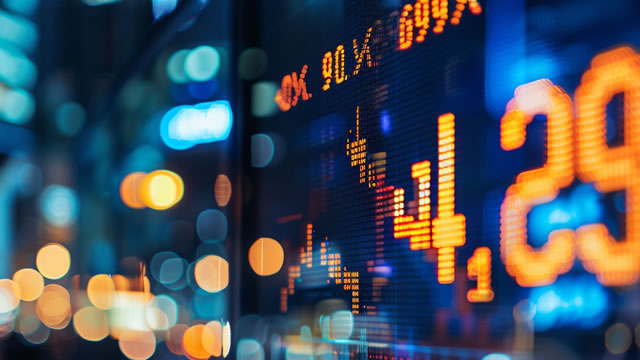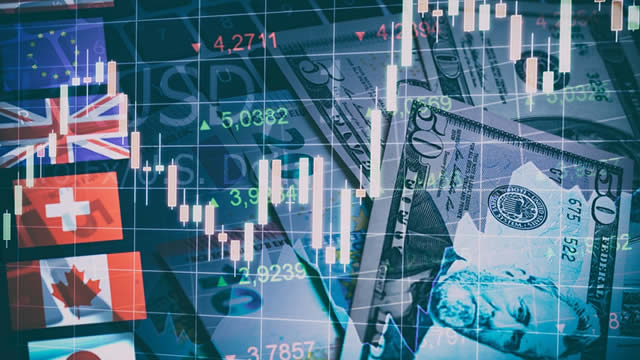The Unpredictable Dance of Trade Tensions: A Rollercoaster Ride for Global Markets
The financial markets took another wild ride on Monday as the trade tensions between the world’s two largest economies, the United States and China, continued to escalate. The unpredictability of the situation sent investors scrambling for cover, resulting in yet another significant loss for global stocks.
The Wrecking Ball Swings Again: The U.S. Perspective
U.S. President Donald Trump’s tariff policies have been a source of great uncertainty for financial markets. On Monday, the markets felt the brunt of this uncertainty once again. The Dow Jones Industrial Average plummeted by over 800 points, while the S&P 500 and the Nasdaq Composite also suffered significant losses. The technology sector was hit particularly hard, with heavyweights like Apple and Microsoft seeing their stocks take a hit.
A Ripple Effect: The Global Impact
The impact of the ongoing trade tensions was not limited to the United States. Markets around the world felt the ripple effect, with European and Asian indices also experiencing significant losses. The German DAX and the French CAC 40 both saw their indices drop by over 2%, while the Japanese Nikkei 225 and the Chinese Shanghai Composite Index both closed in the red.
The Elephant in the Room: Recession Fears
The ongoing trade tensions have fueled concerns about a potential global economic downturn. The International Monetary Fund (IMF) has warned that the trade war could shave 0.8% off the global economy in 2020. Many investors are now bracing for a recession, with some even predicting that it could be worse than the one experienced during the 2008 financial crisis.
So, What Does This Mean for Me?
- If you have a retirement account or a 401(k), the value of your investments may have taken a hit. It’s essential to keep a long-term perspective and avoid making hasty decisions based on short-term market volatility.
- If you’re considering buying a house or making a significant purchase, it might be a good idea to hold off for a bit. The economic uncertainty could lead to higher interest rates and make it more challenging to secure financing.
- If you’re in the business world, you may want to consider diversifying your supply chain to minimize your reliance on any one market or supplier. This could help protect your business from the potential economic fallout.
And What About the World?
The impact of the ongoing trade tensions is not just limited to individual investors or businesses. Entire economies could be at risk. The IMF has warned that the trade war could lead to a slowdown in global growth, particularly in emerging markets. This could result in increased poverty, social unrest, and even political instability in some countries.
A Silver Lining?
Despite the uncertainty and the potential economic risks, there may be a silver lining. The trade tensions could lead to a renewed focus on diplomacy and cooperation between the United States and China. Both countries could benefit from finding a mutually beneficial solution to the trade dispute. And, as history has shown us, market volatility can sometimes create opportunities for savvy investors.
In Conclusion:
The ongoing trade tensions between the United States and China continue to create uncertainty and volatility in the financial markets. While the short-term impact on individual investors and businesses can be significant, the long-term consequences could be even more far-reaching. It’s essential to stay informed, stay calm, and consider the potential opportunities as well as the risks. After all, as the old saying goes, “Every cloud has a silver lining.”





